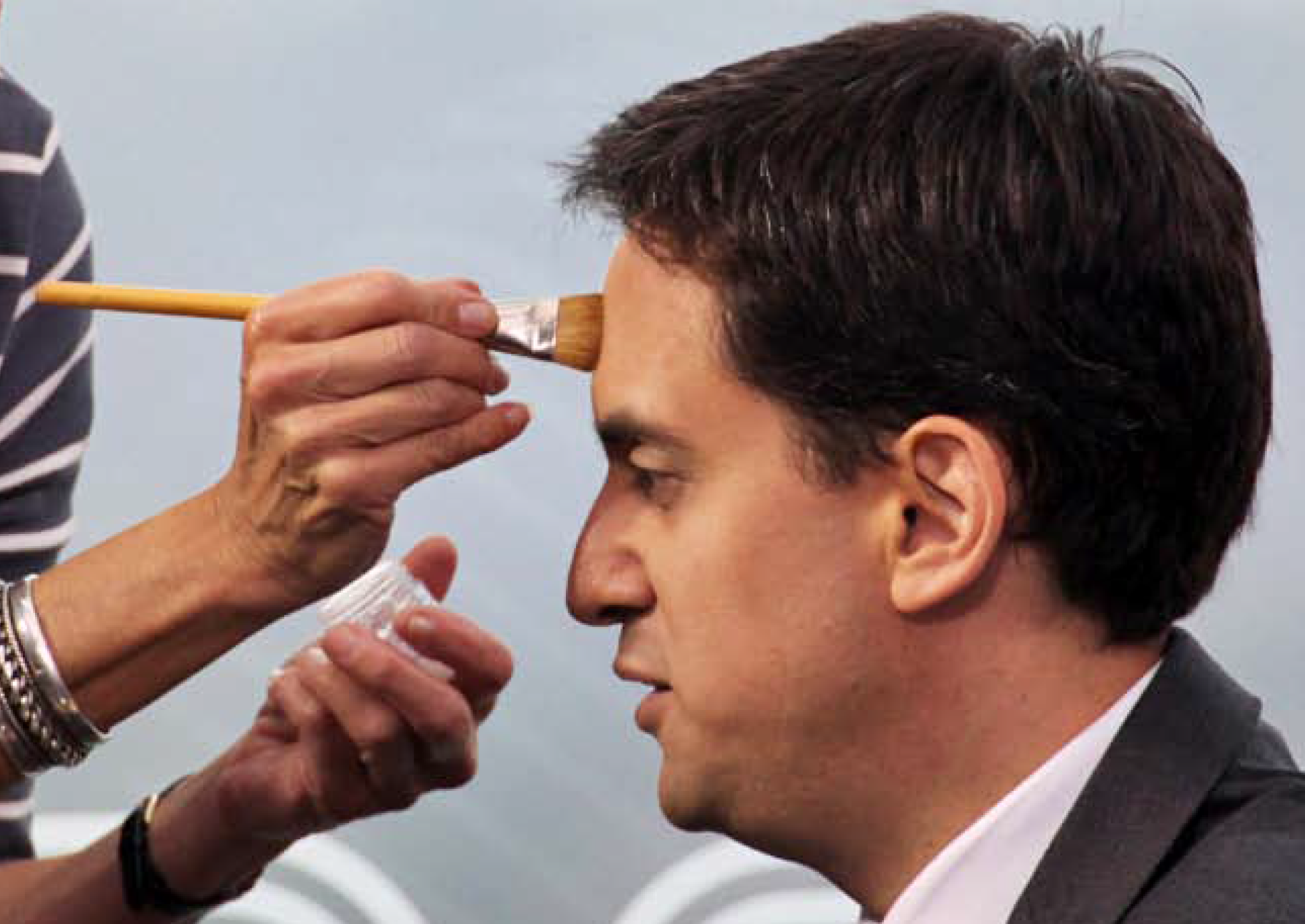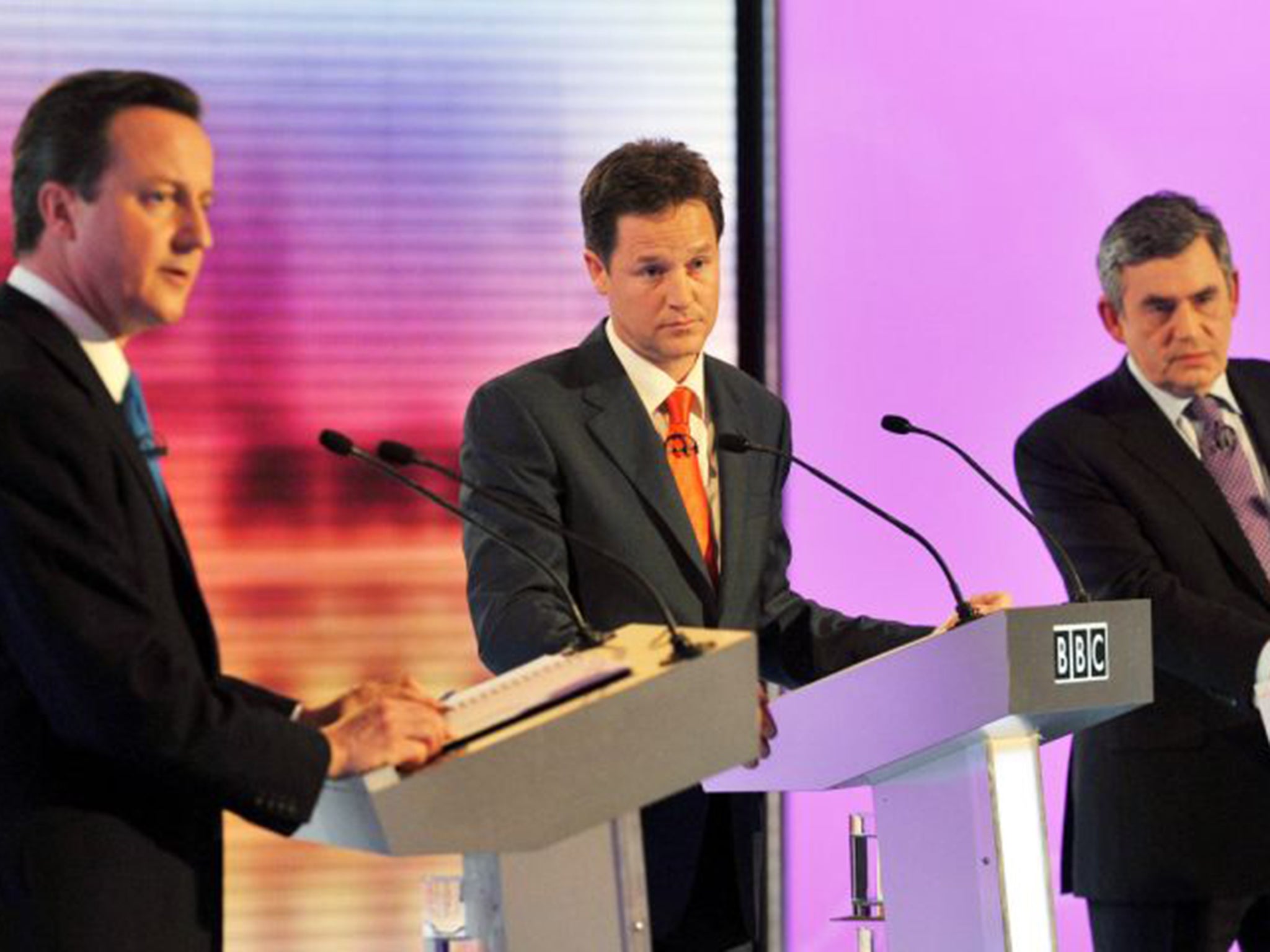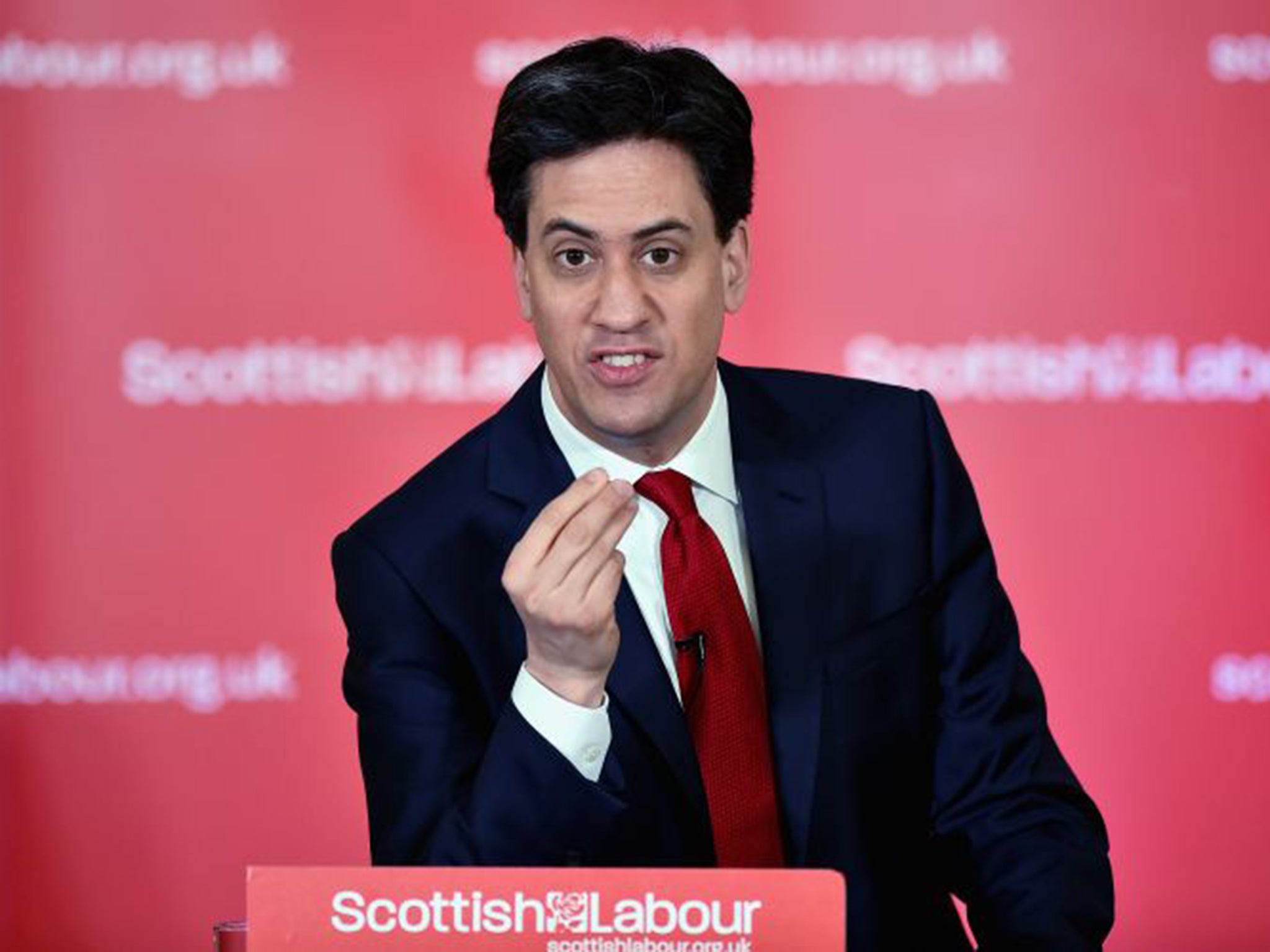Nervous of interviews, Miliband has staked everything on the television debates
The lack of one-on-one debates and rise of the SNP should be causing the party serious pain, but the weakness of the Tories is helping maintain a balance


The resolution of the question the television election debates is largely a trivial matter but in one respect the outcome matters a lot. It is impossible to overestimate the importance that Ed Miliband had attached to the debates as originally conceived – hours of largely unmediated peak-time exposure with David Cameron and Nick Clegg as the other participants.
The television debates, as modelled on the last election, have been a key part of Miliband’s calculations for a very long time. During much of his leadership he has kept an unusually low media profile. Early on as leader he had an uncomfortable experience on the Today programme when John Humphrys described him as “ugly”. Humphrys meant the term as a metaphor for a leader ill-suited to modern demands, but Miliband’s confidence as an interviewee took a knock.
Soon afterwards he had an equally uncomfortable experience on the World at One, during which he repeatedly and awkwardly refused to state whether Labour would borrow more. Again he was low afterwards, but, rather like Gordon Brown, did not reflect much on his own weaknesses as an interviewee. Instead, he regarded most subsequent interview bids as potential stitch-ups. As a result, Miliband has been largely invisible or silent as a national leader for much of the time.
But Miliband had made another calculation, quite a smart one. In relation to national broadcasting he would bide his time and await the three televised leaders’ debates, a format that, with its emphasis on policy, suited him well. There would be an additional bonus for keeping a relatively low media profile in the preceding few years. Like Clegg last time round, he would be the fresh leader compared with the two other ubiquitous figures, both of them contaminated by five years’ worth of power. In a close election, this might have been a big chance for Miliband to move ahead.
On the assumption that the debates were going ahead, Miliband referred to them often. During the recent internal tensions over whether Labour should spend billions of pounds reducing student fees, Miliband insisted that he needed the policy partly as ammunition, and a protective shield, in the television debates. He has also wasted several weekends rehearsing for the debates.

But even when it was clear that Cameron was not willing to co-operate, Miliband saw a silver lining. At first, the broadcasters appeared to stand firm as they threatened to empty-chair the Prime Minister. Miliband assumed that the absence of Cameron would be a running theme throughout the election. The assumption showed a naïve faith in the broadcasters’ resolution.
The BBC would never have challenged Cameron in such a fashion and, once the Conservative-supporting newspapers joined the onslaught against the broadcasters, there was always going to be one outcome. There would be no debates like last time and no empty-chairing of the Prime Minister.
Predictably, a compromise was announced at the weekend, in which the television Question Time format, formulaic in its balanced audiences and confected anger, would replace one of the planned debates.
The two potential Prime Ministers will not appear in a one-to-one. Cameron has outwitted everyone. He will no longer be empty-chaired. There will be no conventional debates. Such is Miliband’s faith in the format that he has still agreed to take part in one debate with all the leaders except Cameron and Clegg. But he misunderstands the constraints of such events. He needed the space to develop arguments and show the connection between ideas and policy. He will not get it.
When some Labour MPs ask warily who it was who advised Miliband to take part in this particular silly debate with other leaders of smaller parties, there is an easy answer. Miliband chose to do so without hesitation. But this is a very poor substitute for what he assumed would be the set piece events of the election. He has lost a game-changing opportunity and one that might have made sense of his low media profile until now.
The lack of television debates is one of two big blows for Miliband since the autumn, neither of which he anticipated. The other more serious one relates to what is happening to Labour in Scotland. In last year’s referendum campaign there was much talk about Labour supporting the union partly because it needed the backing of voters in Scotland to form a UK government. With weeks to go before a general election, polls suggest Labour has lost Scotland anyway. The tidal wave towards the SNP, almost certainly unstoppable before the election, presents Miliband with other problems.

Labour’s campaign structure for this election has always been pretty loose. Now the rise in the SNP means Miliband’s chosen election campaign supremo, Douglas Alexander, is currently spending half his week in Scotland, not least to defend his own seat. Meanwhile, right-wing newspapers echo the Conservatives’ current advertising campaign by warning that the SNP would wield excessive power and influence under a minority Labour government, although this line of attack I suspect is less potent than some editors assume.
Even so, these are big blows to fall on a party that is extremely fragile beneath its disciplined surface. Yet the polls suggest Labour is still very much in contention. There are powerful currents driving this election in a different direction – the failure of Cameron and Osborne to modernise their party and Osborne’s decision to frame the election as one between deep Conservative spending cuts compared with the more modest deficit-related plans of the other parties, a framing that lost them elections in 2001 and 2005. Miliband has lost Scotland and the television debates. But the contest remains as close as ever.
Join our commenting forum
Join thought-provoking conversations, follow other Independent readers and see their replies
Comments
Bookmark popover
Removed from bookmarks